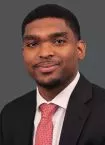- within Wealth Management and Law Practice Management topic(s)
On July 26, 2022, William Birdthistle, the Director of the Division of Investment Management of the US Securities & Exchange Commission ("SEC"), gave remarks at the Practising Law Institute's annual Investment Management Program. In his speech, Director Birdthistle addressed areas of particular regulatory interest to the Division, specific developments confronting the investment management industry in the coming months, and money market funds.
The Division Director focused on the investment management industry's preparedness to address the cessation of LIBOR, and the impact of MiFID II on the market for investment research.
Operational readiness is one main concern regarding advisors' and funds' preparation for the upcoming final transition away from LIBOR on June 30, 2023. Here, asset managers must ensure they are able to adequately understand and address any disclosure obligations and valuation risks resulting from the transition, such as identifying data sources for security-specific updates and planning how and when portfolio positions will convert from their use of LIBOR to an alternative reference rate.
In response to MiFID II, the SEC Staff issued three no-action letters, including one which took the temporary position that the Staff would not consider a broker-dealer that accepted compensation through certain arrangements required by MiFID II to be an investment adviser during a temporary period specified in such letter. The Division does not intend to extend the temporary position beyond July 3, 2023. However, statements or positions that are independent of the temporary adviser status position are not being rescinded.
In March 2020, the onset of COVID-19 led investors to reallocate their assets into cash and short-term government securities. Government money market funds enjoyed record flows of $838 billion in March 2020, and an additional $347 billion in April 2020. One of the primary sources of these inflows were publicly offered institutional prime funds, which experienced weekly redemption rates north of 20% during this period. In his remarks, the Division Director noted that the key question here is how to allow mutual funds to flourish, while still being able to operate in moments of great stress. Director Birdthistle also noted that using swing pricing as a mechanism could have some benefits, allowing investors in a fund to leave whenever they wish, and passing on the higher cost of an exit to departing shareholders. Nevertheless, challenges remain with respect to the regulatory appetite, and the technological network of the United States' financial infrastructure.
See the full text of the Division Director's remarks here.
Visit us at mayerbrown.com
Mayer Brown is a global legal services provider comprising legal practices that are separate entities (the "Mayer Brown Practices"). The Mayer Brown Practices are: Mayer Brown LLP and Mayer Brown Europe - Brussels LLP, both limited liability partnerships established in Illinois USA; Mayer Brown International LLP, a limited liability partnership incorporated in England and Wales (authorized and regulated by the Solicitors Regulation Authority and registered in England and Wales number OC 303359); Mayer Brown, a SELAS established in France; Mayer Brown JSM, a Hong Kong partnership and its associated entities in Asia; and Tauil & Chequer Advogados, a Brazilian law partnership with which Mayer Brown is associated. "Mayer Brown" and the Mayer Brown logo are the trademarks of the Mayer Brown Practices in their respective jurisdictions.
© Copyright 2020. The Mayer Brown Practices. All rights reserved.
This Mayer Brown article provides information and comments on legal issues and developments of interest. The foregoing is not a comprehensive treatment of the subject matter covered and is not intended to provide legal advice. Readers should seek specific legal advice before taking any action with respect to the matters discussed herein.

